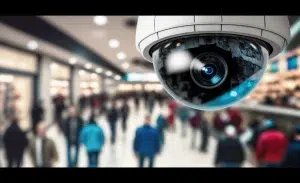Boston’s charm is undeniable, but do the safety statistics keep pace with its reputation? Let’s find out.
Whether you’re planning a visit to Boston or considering relocating for better opportunities, we’ve done the hard work for you!
We’ve conducted comprehensive research using reliable sources to provide you with the latest 2026 statistics. By reviewing data from the Boston Police Department, FBI reports, insights from legal professionals, and input from residents, we’ve identified the city’s safest neighborhoods and compiled actionable tips to help you confidently navigate Boston as a secure and vibrant destination.
With a total crime rate of 26.19 per 1,000 residents, about 2.6% of Boston’s population faces the potential of encountering crime annually.
From its iconic neighborhoods to its bustling streets, Boston has layers each with its own safety profile. So, how safe is it really this year?
Crime index Boston 2025:

In 2025, compared to other big U.S. metros, Boston’s violent and property crime rates are impressively low.
Theft and petty property crime remain the usual suspects, while violent offenses like homicides and assaults ticked up just a smidge IN 2025.
Violent Crime:
Homicide numbers are slightly up.
Boston clocked 27 homicides by mid-October 2025, putting it on track for about 34 by year’s end. That’s higher than 2024’s record-low 24, but still historically tame for a city this size.
The violent crime rate sits around 6.6 per 1,000 residents, covering assault, robbery, rape, and homicide. Even with the bump in murders, overall violent crime actually fell 4% from the same time last year. Fewer shootings, fewer nightmares.
What Does This Mean for You?
For every 1,000 Bostonians:
- 6.6 might fall victim to violent crime.
- Nearly 20 could experience a property crime.
With a total crime rate of 26.19 per 1,000 residents, about 2.6% of Boston’s population faces the potential of encountering crime annually.
Curious how Boston stacks up against other U.S. hotspots? Check out our full guide to the most dangerous cities in the U.S. in 2025 to see where it ranks.
Boston crime rates 2025:
Boston’s official crime report for January 1 to November 2, 2025, shows these main findings:
- Homicides: 28 reported but that’s up from 19 in 2024, but still hovering around the 5-year average of 33.6. (And yes, a few late investigations from prior years sneak into that count.)
- Rape incidents: 132, slightly lower than both 2024’s 152 and the five-year average of 183.8. It is progress, even if slow.
- Robberies: 655, dipping below last year’s 685 and the five-year norm of 708.
- Aggravated assaults: 776 domestic and 1,342 non-domestic. These stats are right on trend, neither spiking nor falling dramatically.
- Property crimes: Down 3% citywide, with larceny, burglary, and auto theft all holding steady or easing slightly.
Boston safety map:

Northern Boston:
Northern Boston, which includes neighborhoods like Charlestown and parts of East Boston, has a relatively moderate crime rate.
It’s generally safe, though, like in any urban area, certain pockets may experience occasional property crime or isolated incidents.
Areas like the North End, however, are bustling with tourists and are known for their charm and safety, making them perfect for a day of exploration.
Southern Boston:
Southern Boston covers neighborhoods like South Boston, Dorchester, and Roxbury, and it’s here that you’ll find a mix of safety levels.
South Boston, particularly around its waterfront and touristy areas, is usually safe and inviting. However, parts of Dorchester and Roxbury are known to have higher crime rates, especially violent crime, so it’s wise for tourists to stay cautious in these areas, particularly after dark.
Eastern Boston:
The eastern part of Boston, including East Boston and the Seaport District, is mostly safe for visitors.
The Seaport is a rapidly growing area with plenty of attractions, shops, and businesses, which make it a hotspot for both tourists and locals.
While East Boston does have areas with moderate crime, it’s not typically a major concern as long as visitors stick to well-populated, well-lit areas.
Western Boston:
The western neighborhoods, like Allston and Brighton, tend to have lower crime rates. These areas are popular with students and young professionals, creating a vibrant and relatively safe atmosphere.
With attractions like Fenway Park, these neighborhoods are great for tourists, but like any city, it’s always good practice to stay alert and aware of your surroundings, particularly when venturing off the beaten path.
While the city’s crime numbers tell a mixed story, they also reveal a clear opportunity: understanding the risks can help you navigate life here with confidence. Let’s break down how Boston stacks up in terms of safety and what these statistics mean for those who call this city home.
Is Boston safe for residents?
While a Gallup survey reflects public opinion, crime data from MoneyGeek ranks Boston as the 10th safest city in the U.S. and shows it’s safer than Dallas in terms of violent crime.
Boston is making headlines in 2024 with a historic drop in homicides only 24 cases, the lowest since 1957, marking a significant 33% decline compared to last year.
But let’s not stop there.
While the drop in homicides is worth celebrating, other crime categories are on the rise. Violent and property crimes have increased by 1%, driven by spikes in aggravated assaults, commercial burglaries, and larcenies.
Shoplifting, in particular, has skyrocketed by 30%, drawing attention to retail theft as a growing issue.
Mayor Michelle Wu proudly calls Boston the “safest major city in the country.”
While some experts agree Boston’s safety record is impressive, others point out that the numbers may not make it the absolute safest nationwide.
Your perceptions of safety can vary dramatically depending on where you are in Boston.
According to a report by Boston Guardian: in some downtown neighborhoods, residents have voiced concerns about an uptick in drug-related activities and related crimes, which has created a sense of unease for certain communities.
Is Boston safe for tourists?

For tourists, areas like Back Bay, Beacon Hill, and the North End are generally considered safe and are popular destinations.
Public transportation, including buses and subways, is typically safe during the day, though it’s advisable to exercise caution during late-night travel.
You might wonder: Is Boston still safe at midnight? Or maybe: What are the safety concerns of walking around downtown?
Well, let’s ask the locals!
Arlene, who has been living in Boston for five years, says about walking in the streets of Boston at midnight:
It depends on the area. Avoid Northeastern’s campus, Ruggles Train Station, Causeway Street, and the TD Garden area due to crime and safety concerns. SOWA, while artsy, has issues with crime and drugs near Albany Street and Harrison Avenue. Stick to well-lit areas and visit neighborhoods like SOWA during the day.
John, who has been living in Boston since 1996, tells us about his experience of living in Boston:
Boston is one of the safest large U.S. cities, especially in tourist areas. Crime is mostly concentrated in neighborhoods like Roxbury, Dorchester, and East Boston. Nearby Chelsea has a higher crime rate, while towns beyond Route 128, such as Lynn, Lawrence, and Brockton, have more violent crime. Avoid driving if you’re unfamiliar with the city, and think twice before wearing a Yankees cap in a bar!
Is Boston safe for students?

Boston is a vibrant and diverse city that hosts a significant number of international students, making it a popular destination for higher education. In the 2024 academic year, Massachusetts hosted 79,751 international students.
Boston University, for example, reports that international students make up about 24.6% of its student body.
Is Boston a safe bet for business?
According to Capital Analytics, Massachusetts was ranked the No. 1 state for business environment by U.S. News & World Report in 2023. But things have been a bit different in 2025.
Boston’s 2025 crime data shows that business and retail theft is becoming a key focus for city officials.
According to the Boston Police Department’s open data on Boston Globe, shoplifting and related larcenies rose around 11–15%.
Local outlets like WGBH report that “shoplifting-related arrests have increased 82% year over year,” with most incidents concentrated in downtown and Back Bay retail areas.
Data from the FBI’s Uniform Crime Reporting program, compiled by the Massachusetts Executive Office of Public Safety, shows Boston’s commercial property crime slightly above national urban averages but still below its own five-year peak.
City officials are responding with both enforcement and prevention. A Boston Police spokesperson said the department is “focusing resources on known hotspots while working with store owners to prevent theft before it happens.”
At the same time, Mayor Michelle Wu’s administration is connecting retail theft prevention to broader safety efforts through the Office of Violence Prevention, emphasizing early intervention and community
Let us guide you through the spots you might want to steer clear of or be extra cautious in.
The most dangerous neighborhoods of Boston ?
Rent Own Sell New York gives its list of the most dangerous areas of Boston:
| Neighborhood | Crime Rate (per 100,000 people) | Key Safety Issues | Notable Areas |
|---|---|---|---|
| Mattapan | 1,057 | High gang activity, drugs, and shootings | High-crime zones, lack of resources |
| Roxbury | 1,006 | Drugs, gangs, urban decay | – |
| Dorchester | 857 | Violence, property crimes | Blue Hill Avenue, Codman Square, Fields Corner |
| East Boston | 718 | Crime, especially in some parts | Maverick Square, Orient Heights, Eagle Hill |
| South Boston | 617 | Violent crime, particularly at night | Andrew Square, Broadway, Dorchester Heights |
What is the government doing to make Boston safer?
The government in Boston is certainly not sitting idle when it comes to making the city safer. One of the most significant initiatives is the Stronger Joint Enforcement. The Boston police and partners made nearly 500 joint arrests, took 65+ illegal guns off the streets, seized 30,000 grams of narcotics, and distributed $925,000 in grants to support focused crime prevention.
Mayor Wu’s team turned the old Community Safety unit into a full Office of Violence Prevention, backed by $1 million in funding. The office meets weekly with city departments to tackle neighborhood violence.
The city now publishes semi-annual reports showing 8,400 field encounters and 17,000+ arrests in FY2025. Each release comes with independent review and reform plans focused on fairness, accountability, and community trust.
Additionally, tougher laws for youth offenders and the expansion of prevention and intervention programs are working to steer young people away from crime. By addressing youth violence early, the city helps reduce the likelihood of young offenders becoming repeat criminals.
How to stay safer in Boston in 2026?
Proactive detection and swift action by live remote video monitoring are also ways to ensure safer businesses in Boston !
Because staying safe is not a one-time thing; you need security 24/7, 365 days a year. Whether you live in the suburbs, downtown, or even the northern parts of Boston!
If you want the safety of your business, people, and assets all at once, then third-party reliance is the only way out.
With AI-powered remote video monitoring, CCTV surveillance cameras detect security breaches such as intrusions, brandished guns and violence, and even smoke and fire. Detection accuracy is the only way to deal with the problem swiftly.
The alarm is triggered at the live video monitoring center when the camera AI detects these vulnerabilities. Here, the qualified remote operators spring into action. They access your CCTV cameras, assess the situation, and take action in accordance with each client’s SOPs.
These criminals are either dealt with by direct voice interventions through on-site speakers or by calling the police or required authorities as per client SOPs.
Read our latest blogs to find out how the residents of Atlanta, Washington D.C., Detroit, Dallas and even the areas around it are staying safer with remote video monitoring!
- Most dangerous cities in the US.
- Is Dallas safe? Crime rate and safest neighborhoods.
- Is Washington DC safe for tourists and residents? 2025 update.
- Is Detroit Safe? A Comprehensive Look at 2025 Crime Rates.
- Atlanta crime rate stats & safest neighborhoods: 2025 insights.
- Top Safest Cities in North Carolina: Where to Live in 2025.
Key takeaways:
- Boston is generally safe, with a significant decline in homicides and safer neighborhoods like Back Bay and Beacon Hill.
- Some areas, such as Dorchester, Roxbury, and Mattapan, require caution, particularly at night.
- Proactive government measures and modern security solutions contribute to improving safety across the city.
- Tourists and students can confidently explore Boston by sticking to well-lit, populated areas and avoiding high-crime neighborhoods.
Improve your security with remote video monitoring. With AI-powered CCTV surveillance, you can ensure constant protection for your property, detect potential issues early, and respond swiftly.
Reach out today to discover how this smart solution can help your business stay ahead of security challenges.





